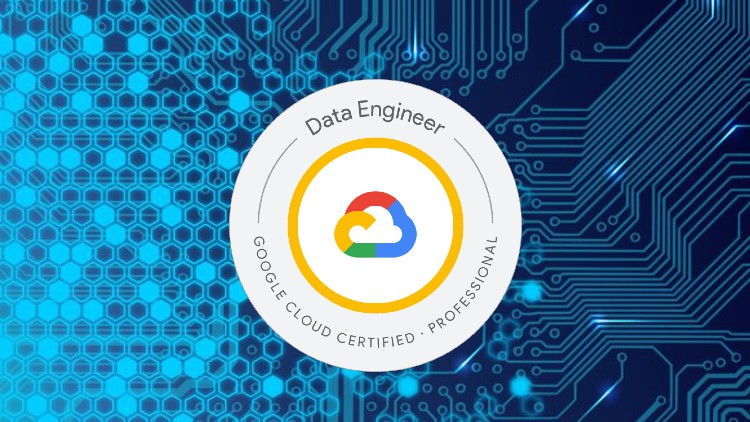
Get certified in Google Professional Data Engineering
What you will learn
Learn about Google Professional Data Engineering
Test what you’ve learned about Google Professional Data Engineering
Become an expert in Google Professional Data Engineering
Get certified in Google Professional Data Engineering
Description
As a Google Cloud Professional Data Engineer, you will be responsible for designing, building, and deploying highly scalable and reliable data pipelines and systems that support a wide range of data-driven applications and analytics. This role requires expertise in various data processing technologies and platforms, such as Hadoop, Spark, Cloud Dataflow, Cloud Dataproc, and Cloud Pub/Sub, as well as proficiency in data modeling, data warehousing, and data architecture.
Key responsibilities of a Google Cloud Professional Data Engineer may include:
- Designing and implementing data processing systems and pipelines using Google Cloud Platform technologies.
- Developing and deploying data integration solutions, including ETL and ELT processes, data cleansing, and data transformation.
- Building and maintaining data warehouses and data lakes that are highly scalable, available, and secure.
- Developing and deploying data analytics solutions that enable business insights and data-driven decision-making.
- Collaborating with cross-functional teams, including data scientists, software developers, and business stakeholders, to design and deliver data-driven solutions.
- Developing and implementing data governance and security policies to ensure the confidentiality, integrity, and availability of data.
- Creating and maintaining documentation of data systems, architectures, and processes.
To become a Google Cloud Professional Data Engineer, you will need to have a strong background in data engineering, data architecture, and cloud computing. You should also have experience with data processing tools and platforms, as well as programming languages such as Python, Java, and SQL. Additionally, you will need to demonstrate your ability to design and implement scalable and reliable data systems and pipelines, as well as your understanding of data governance and security principles.